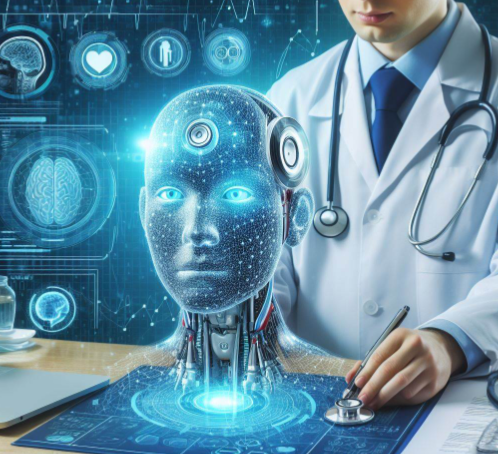Artificial intelligence (AI) is revolutionizing the healthcare industry, offering unprecedented opportunities to enhance patient care, streamline processes, and drive medical innovation. From diagnostic assistance to personalized treatment plans, AI-powered solutions are transforming every aspect of healthcare delivery. In this article, we’ll explore the latest developments in AI healthcare applications and their potential impact on patient outcomes.

The Rise of Artificial Intelligence in Healthcare
Harnessing the Power of Data and Algorithms
AI technologies leverage vast amounts of medical data, including electronic health records (EHRs), medical imaging scans, genomics data, and real-time patient monitoring, to generate insights and support clinical decision-making. Machine learning algorithms can analyze complex datasets and identify patterns, correlations, and predictive insights that may not be apparent to human clinicians.
Applications Across the Healthcare Continuum
AI has diverse applications across the healthcare continuum, from preventive care and early disease detection to treatment optimization and post-operative monitoring. Examples include AI-driven diagnostic tools for medical imaging interpretation, predictive analytics for patient risk stratification, virtual health assistants for patient engagement and education, and robotic-assisted surgery systems for precision surgical interventions.
Recent Developments in AI Healthcare
Diagnostic Advancements
AI-powered diagnostic tools are revolutionizing medical imaging interpretation, enabling faster and more accurate detection of diseases such as cancer, cardiovascular conditions, and neurological disorders. Deep learning algorithms trained on large datasets can detect subtle abnormalities and assist radiologists in making more informed diagnoses.
Personalized Medicine
AI is driving the shift towards personalized medicine, where treatment plans are tailored to individual patient characteristics, preferences, and genetic profiles. By analyzing patient data and genetic information, AI algorithms can identify optimal treatment strategies, predict treatment responses, and minimize adverse effects, leading to better patient outcomes and improved quality of care.
Challenges and Opportunities
Ethical and Regulatory Considerations
The widespread adoption of AI in healthcare raises ethical and regulatory considerations related to data privacy, patient consent, algorithm transparency, and bias mitigation. Ensuring the responsible use of AI technologies requires collaboration between healthcare providers, technology developers, policymakers, and ethicists to establish guidelines and standards that prioritize patient safety and autonomy.
Integration and Adoption
Despite the potential benefits of AI in healthcare, challenges remain in integrating AI technologies into clinical practice and overcoming barriers to adoption. Healthcare organizations must invest in infrastructure, data governance frameworks, workforce training, and stakeholder engagement to successfully implement AI solutions and realize their full potential in improving patient outcomes.
Conclusion
Artificial intelligence holds immense promise for transforming healthcare delivery and improving patient outcomes across the globe. By harnessing the power of data-driven insights and advanced algorithms, AI has the potential to revolutionize diagnosis, treatment, and patient care, ushering in a new era of precision medicine and personalized healthcare.